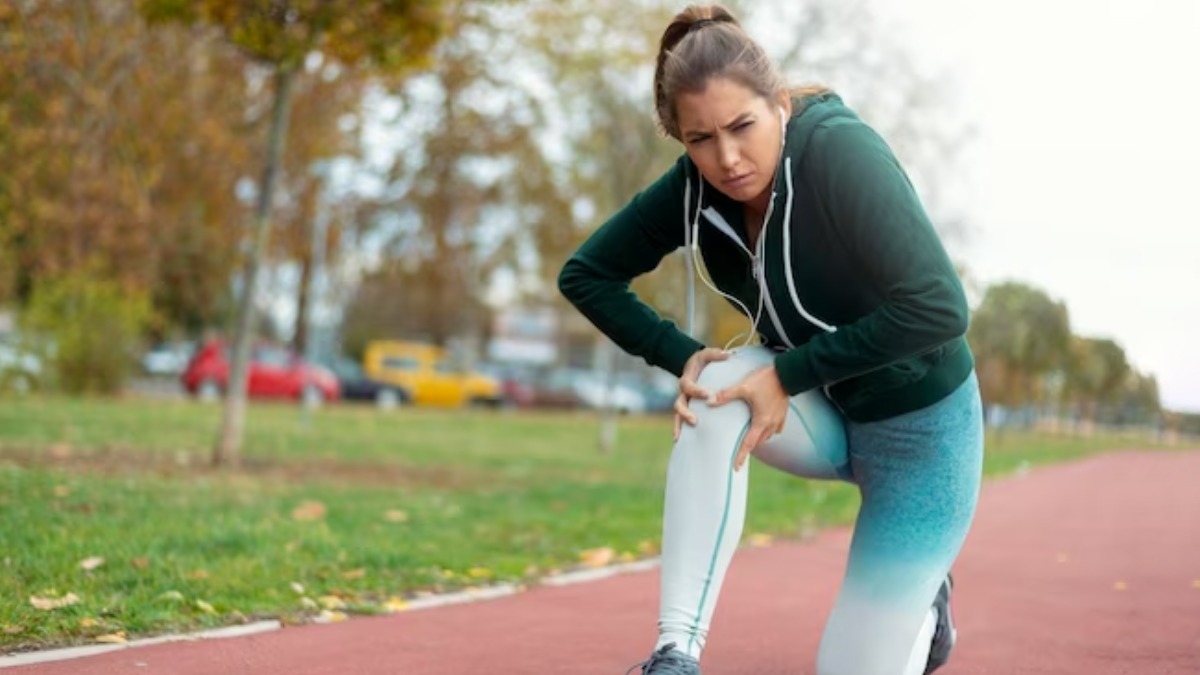
Taking care of our joints is crucial for overall well-being, and for women, it becomes even more important. Arthritis, a common condition characterised by joint pain and inflammation, affects a significant number of women worldwide. However, there are proactive steps that women can take to reduce their risk of developing arthritis and maintain healthy joints.
Table of Content:-
Dr Debashish Chanda, Lead Consultant, Department of Orthopaedics, CK Birla Hospital, Gurugram, listed tips to reduce arthritis risk for women.
The majority of people's joints do degenerate over time, but many types of arthritis are caused by an immune system-mediated injury that can occur at any time, according to the Johns Hopkins Arthritis Centre (JHAC).
Tips To Reduce Arthritis Risk
Dr Chanda said that while certain risk factors like genetics and ageing are beyond our control, there are several lifestyle changes that women can adopt to reduce the risk of developing arthritis.

Maintain a healthy weight
Excess weight puts strain on the joints, particularly the knees and hips. By maintaining a healthy weight through a balanced diet and regular exercise, women can reduce the stress on their joints and lower the risk of arthritis.
Stay active
Regular exercise helps keep joints flexible and strengthens the muscles surrounding them. Dr Chanda said, “Low-impact activities like walking, swimming, and cycling are excellent choices. It's important to strike a balance between staying active and avoiding overexertion or high-impact activities that may strain the joints.”
Also Read: Rheumatoid Arthritis VS Osteoarthritis: Expert Explains The Difference Between The Two
Protect your joints
Practise joint-friendly techniques during daily activities. Use proper body mechanics when lifting heavy objects, and avoid repetitive movements or prolonged periods of sitting or standing. If necessary, use assistive devices, such as ergonomic tools or braces to support and protect your joints.

Eat a balanced diet
Consuming a diet rich in fruits, vegetables, whole grains, lean proteins, and healthy fats can provide essential nutrients and antioxidants that support joint health. Certain foods like fatty fish (salmon), nuts, and seeds contain omega-3 fatty acids, which have anti-inflammatory properties.
Manage stress
Dr Chands said, “Chronic stress can contribute to inflammation and worsen arthritis symptoms. Take part in stress-relieving activities like yoga, meditation, deep breathing exercises, or relaxing hobbies.”
Also Read: Rheumatoid Arthritis Can Affect Your Lungs Too: Expert Explains The Cause

Protect yourself from injury
Take precautions to avoid joint injuries, such as using proper safety gear during physical activities or sports. Falls can also cause joint damage, so keep your home well-lit, remove tripping hazards, and use handrails on stairs.
Maintain good posture
Maintaining good posture is essential for joint health, as it helps distribute weight evenly and reduces strain on specific joints. Practise proper ergonomics, such as using ergonomic chairs and positioning your computer screen at eye level, to support a healthy posture and reduce the risk of joint-related issues.
Get regular check-ups
Regular medical check-ups can help identify early signs of arthritis or other related conditions. Consult with your healthcare provider for appropriate screenings, diagnosis, and treatment if needed.
Bottomline
Dr Chanda concluded, “While these tips can help reduce the risk of developing arthritis, they do not guarantee complete prevention. It's always advisable to consult with a healthcare professional for personalised advice and guidance based on your circumstances.”
Disclaimer
This article contains information provided by a registered healthcare professional. However, we advise you to consult your expert for a treatment based on your body type and medical history.
Also watch this video
How we keep this article up to date:
We work with experts and keep a close eye on the latest in health and wellness. Whenever there is a new research or helpful information, we update our articles with accurate and useful advice.
Current Version